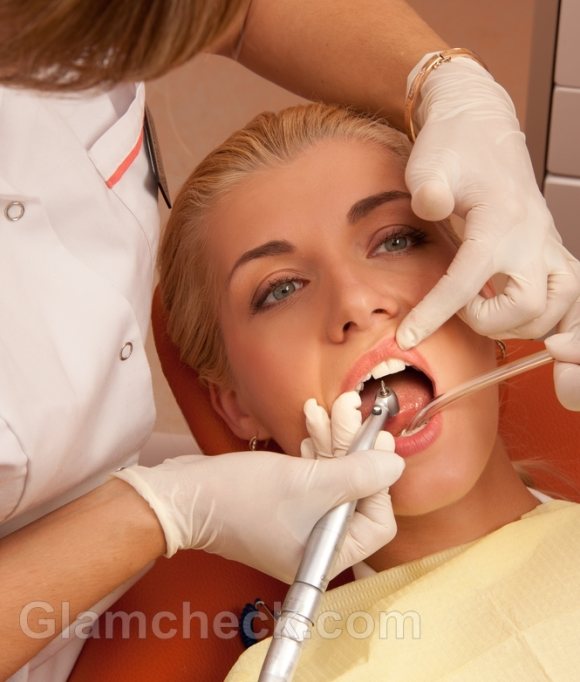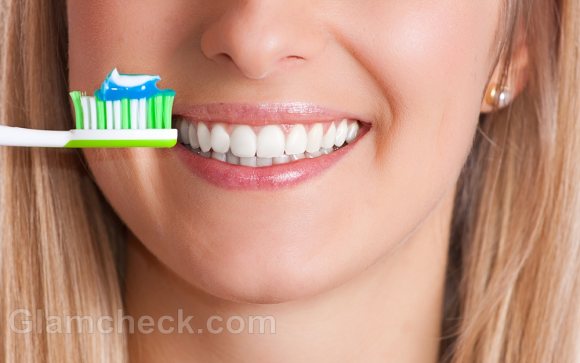Everyone dreads stepping into the dentist’s office for one precise reason – getting rid of those painful cavities and more pain that ensues once they are prodded out of the tooth. Oral hygiene should be accorded paramount importance as recent researches have proven that there is a strong connection between oral health and the wellness of other organs and systems in the body. Taking care of the teeth and gums in a proper manner by following a strict oral hygiene regime helps in preventing various diseases of the gums and teeth, including cavities.
Cavities – How They are Formed
 To understand what cavities are, it is important to have a basic understanding of processes which result in its formation. Plaque refers to a film of micro organisms that is naturally formed on the tooth surface. If plaque is not removed regularly by brushing, the bacteria act on the left over food particles and it begins to harden. The continuous presence of thick bacterial colonies results in the release of acid from the bacteria’s anaerobic respiration process on to the surface of the tooth.
To understand what cavities are, it is important to have a basic understanding of processes which result in its formation. Plaque refers to a film of micro organisms that is naturally formed on the tooth surface. If plaque is not removed regularly by brushing, the bacteria act on the left over food particles and it begins to harden. The continuous presence of thick bacterial colonies results in the release of acid from the bacteria’s anaerobic respiration process on to the surface of the tooth.
Cavities are mainly caused by two groups of bacteria – Lactobacillus and Streptococcus mutans.
The acids demineralize the outer layer of the tooth, the enamel. Over time, the tooth structure begins to disintegrate as the acids eat into the tooth, and this is the reason the tooth develops holes and depressions when cavities aggravate. When cavities begin to form, it may be recognized by mild or persistent pain in the affected tooth, sensitivity and also visible depressions if left unattended.
If left untreated for long, the entire tooth might decay and finally may have to be extracted. It is best to take proper precautions and focus on how to avoid cavity.
Simple Tips on How to Avoid Cavity
Maintaining a healthy daily oral care routine is the basic step towards preventing cavities. The essentials include brushing thoroughly and regularly; flossing the teeth daily and, not to forget, regular visits to the dentist. The focus should be on how to avoid cavity as it is always a better option to prevent any disease before it strikes.
Keep It Clean
 When bacteria act on the accumulated food particles on the teeth as well as the inter-dental spaces plaque is formed which ultimately results in the development of cavities. So the first step in preventing cavities is to keep the oral cavity clean and remove all food particles that might be lodged in the mouth.
When bacteria act on the accumulated food particles on the teeth as well as the inter-dental spaces plaque is formed which ultimately results in the development of cavities. So the first step in preventing cavities is to keep the oral cavity clean and remove all food particles that might be lodged in the mouth.
- Brushing is the simplest and the most important means to keep germs at bay. Brushing should be done in a careful manner, preferably twice a day. All sides of the teeth should be covered while brushing and it should last for at least two minutes.
- Use brushes with narrow and flexible head to ensure better reach in to the interiors of the oral cavity.
- Flossing should be incorporated into the daily oral care ritual for effective cleaning of the oral cavity. Flossing helps to remove the food particles lodged in the inter-dental spaces which cannot be reached by a tooth brush.
- For those who do not fancy flossing, other options are available. Inter dental brushes, with a small head surrounded by fine bristles, help in cleaning the gaps between the teeth. These brushes are available in various sizes depending upon the inter-dental space and the most comfortable one may be picked.
- Water flossers available in the market are easy to use and very effective in removing the debris that might be hidden between the teeth. One of the well known water flossers, Waterpik, also stimulates and massages the gums in addition to thoroughly cleaning the oral cavity. Water flossers can be used every day and is available for kids as well.
- Mouthwashes have great anti bacterial properties and help in limiting the colonization of bacteria in the mouth.
- Dental products with fluoride help prevent cavity attacks. Most toothpastes as well as mouthwashes contain fluoride.
- Research has shown that Hydrogen Peroxide in combination with Sodium Bicarbonate can limit the growth of Streptococcus thereby protecting against cavities and tooth decay.
- Dental sealants also offer protection against cavities. They line the molars with a thin coating of a plastic like substance that helps to keep food from getting stuck in the teeth. This method is most effective and completely non fussy for children compared to adults.
Eat Right
What goes into the mouth determines the condition of the oral cavity and dental health. Development of cavities is directly related to one’s lifestyle, eating habits and the concern shown towards taking care of one’s oral health. Food stuff that may cause damage to the teeth and gums should be minimized at best, if unavoidable.
- A balanced diet is always recommended for general well being and the same applies to oral health as well. Snacking in between meals should be avoided as much as possible.
- Food stuff with high acid content tends to affect the top most enamel layer of the tooth. With the wearing away of the enamel, the process of cavity formation gets a boost. Consuming fizzy drinks regularly aggravates the process of enamel wear.
- The presence of sugars in the mouth tends to activate bacterial functioning, so it is very important to regulate and moderate sugar consumption.
- Sucrose based food items and confectioneries, especially the sticky ones, are capable of causing some of the most disastrous effects on the teeth. Always rinse the mouth thoroughly with a mouthwash, if not plain water, after consuming any sweets or sucrose rich item. The less scope the bacteria have for colonizing, the better it is for cavity prevention.
- Saliva helps to cleanse the mouth and also neutralize the oral cavity, discouraging germ growth. Food items capable of triggering increased saliva secretion are recommended as they rinse the mouth thoroughly and help keep it clean. When the mouth is left dry, the risk of developing cavities is increased.
- Chewing sugar free gum with Xylitol is known to reduce the probability of developing cavities as it suppresses the growth of Streptococcus.
- Food rich in calcium help remineralize the teeth and prevent cavity formation.
Expert Speak
Cavities may be difficult to detect without the help of a dentist. It is difficult to tell if one has cavities or not just by looking into the mouth in the mirror as it may not be visible on the surface. Most cavities are detected by dentists with the help of dental X-Rays.
- Never leave a toothache unattended.
- It is important to visit the dentist at least twice a year to make an assessment of general oral health.
- Regular dental check up helps a great deal as the problem, if any, can be identified during the initial stages itself and treated before it intensifies. If the cavity is allowed to deepen and aggravate, the only solution that may be available at later stages is to go for a root canal treatment to remove the damaged pulp completely. It is best concentrate on how to avoid cavity than to deal with severe complications at later stages.
- Dentists also offer professional cleaning services to rid the oral cavity of accumulated germs and plaque. The effect may last for a few months and with a good oral hygiene routine, it may be maintained for longer periods.
A proactive approach towards dental care and hygiene with regular visits to the dentist will keep cavities under control and prevent them from becoming unmanageable at subsequent stages. When addressed during the early stages of their occurrence the cavities can be effectively checked and prevented from developing into major problems.
Image: Shutterstock
